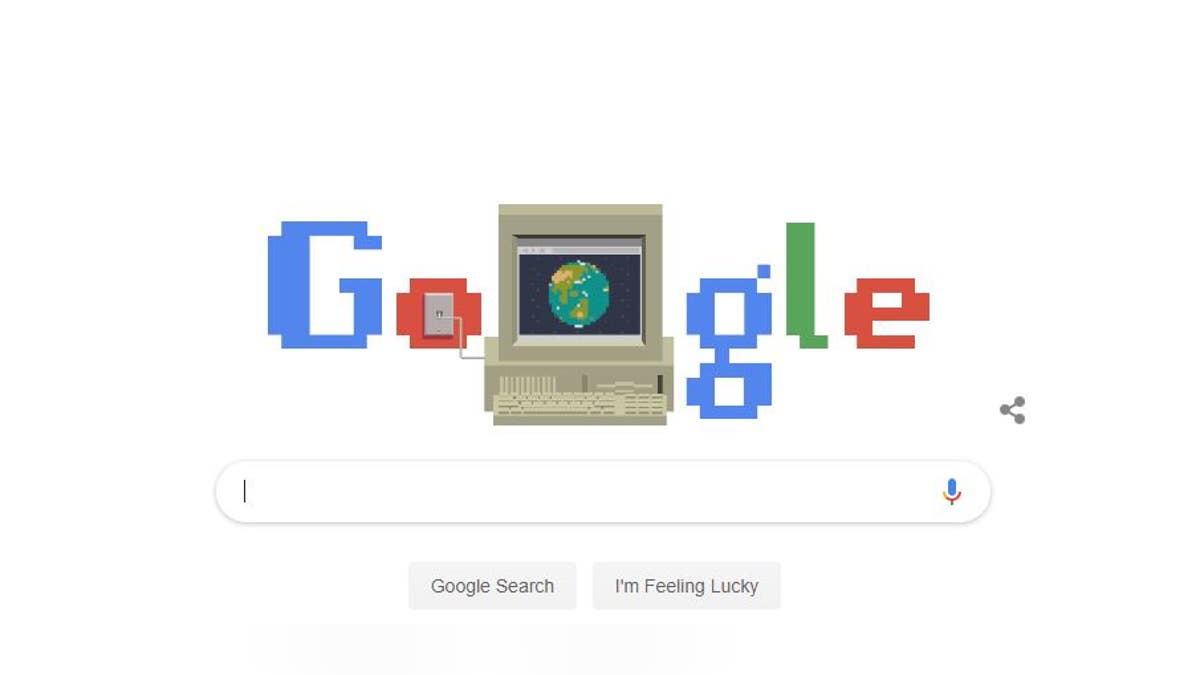
Google celebrates the invention of the internet. (Google)
Google on Tuesday celebrated the 30th anniversary of the World Wide Web with a unique Google Doodle, while the creator of the internet, Tim Berners-Lee, lamented the direction it has taken over the years.
The doodle is a far cry from the web we know now—it shows a beige computer and keyboard with a slow-downloading video, which hearkens back to the early days of the web. The designs paints a more optimistic picture of the web compared to its creator, who offered a more cynical view of his invention.
Berners-Lee, the English software engineer who submitted his proposal for what would evolve into the World Wide Web 30 years ago Tuesday, said in a letter that his invention no longer serves its true purpose to promote the free exchange of information around the globe.
HOW GOOGLE KNOWS YOUR ‘SECRET INTERESTS’
“Look at the 50 percent who are on the web, and it’s not so pretty for them,” he said. “They are all stepping back suddenly horrified after the Trump and Brexit elections realizing that this web thing that they thought was so cool has actually not necessarily been serving humanity very well.”
Berners-Lee also cited state-sponsored hacking, online harassment, hate speech, and the spread of misinformation as just some of his concerns.
The U.S. military had been using a global network of computers that communicate with each other known as the “internet” since the 1960s when a then 33-year-old Berners-Lee introduced the design for the “web,” according to The Verge. His idea grew — Berners-Lee developed HTML language and the HTTP application before launching the world’s first web browser in 1991.
The “web” allowed the average person, not just scientists and engineers, to access the vast information network. Berners-Lee plans to stop where he first pitched the idea for the web. CERN, the European Organizations for Nuclear Research, will welcome Berners-Lee to speak about his new venture with the World Wide Web Foundation on Tuesday.
The World Wide Web Foundation promotes a “Contract for the Web,” a list of guidelines for governments, companies and citizens. The foundation is calling on governments to ensure everyone can connect to the internet, companies to respect privacy and offer web access at affordable rates, and citizens to respect civil discourse online.
Berners-Lee wrote that this contract is not a quick fix, but rather a way to improve people’s relationship with the online world. He said his invention mirrors humanity, the good and the bad.
CLICK HERE FOR THE FOX NEWS APP
Though Berners-Lee recognized the good in his creation in giving the marginalized a voice, he said, “it has also created opportunity for scammers, given a voice to those who spread hatred, and made all kinds of crime easier to commit.”
The Associated Press contributed to this story.
